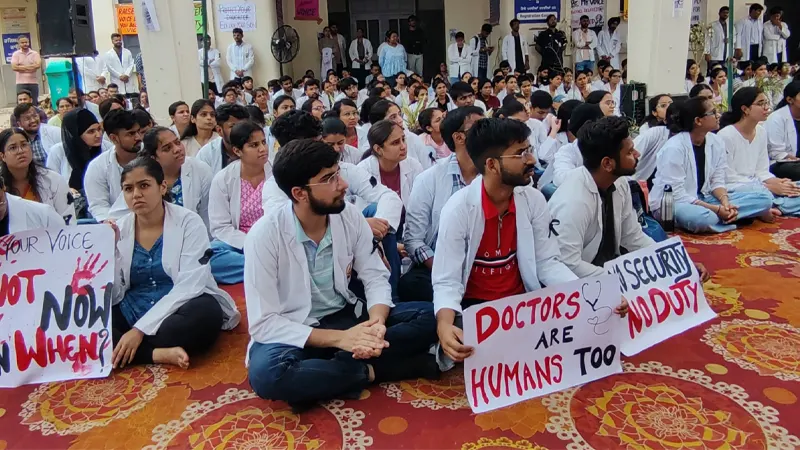The second phase of the doctors’ strike in Punjab began today (Thursday), leading to the complete closure of Outpatient Department (OPD) services across the state. The Punjab Civil Medical Services Association (PCMSA) announced that doctors will not issue any medical certificates, such as those required for driving, gun, or employment licenses. However, emergency services will remain available during the strike.
The PCMSA stated that the strike will continue as planned until the government issues a formal notification reflecting the agreements discussed in the meeting held on September 11 between doctors and government officials. Key issues raised include the demand for increased security for doctors and medical staff, as well as regular salary increments.
Punjab Strike Phases and Timeline
The strike, initially planned in three phases, saw the first phase take place from September 9 to 11, during which OPD services were suspended daily from 8 a.m. to 11 a.m. The second phase, now in effect, will continue until September 15, with all OPD services fully suspended. If the demands are not met, the doctors plan to escalate the strike into a third phase starting on September 16, where both OPD and medical-legal duties will be suspended.
Impact of the Second Phase
During this second phase of the strike, OPD services will remain closed until September 15.
Services Available and Suspended:
• Emergency and life-saving surgeries, including elective and emergency cesarean sections, will continue uninterrupted.
• Emergency cases, such as accident victims, will still be treated in hospitals.
• Suspended Services:
• No medical certificates or examinations, including those for arms licenses or job-related medical check-ups, will be provided.
• Doctors will not perform any VIP or VVIP medical duties.
• No dope tests will be conducted.
• Test reporting will be halted, except for dengue-related reports.
• No departmental meetings or evaluations under the “Kayakalp” scheme will take place.
The doctors have made it clear that the strike will not end until their demands are met, especially concerning hospital security and salary increments. As of now, the government’s response is awaited, and the strike continues to disrupt healthcare services across the state.
